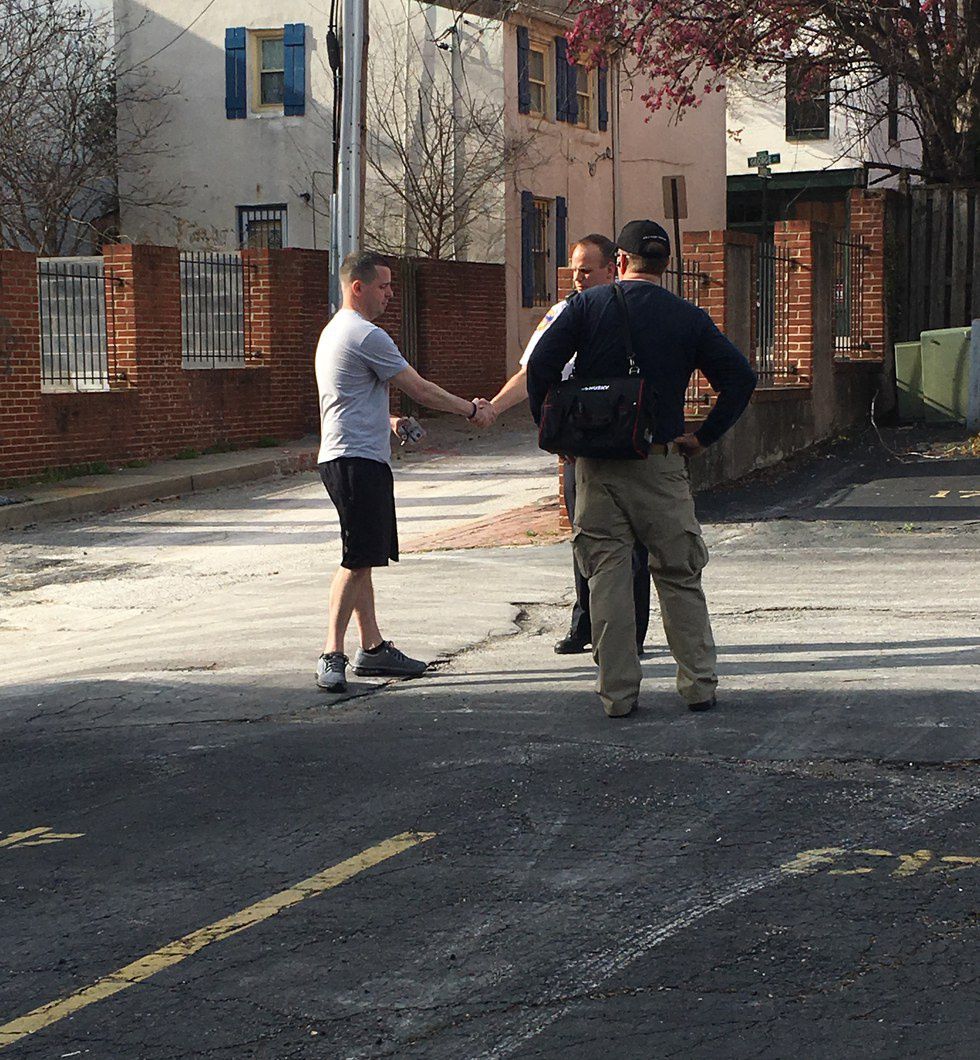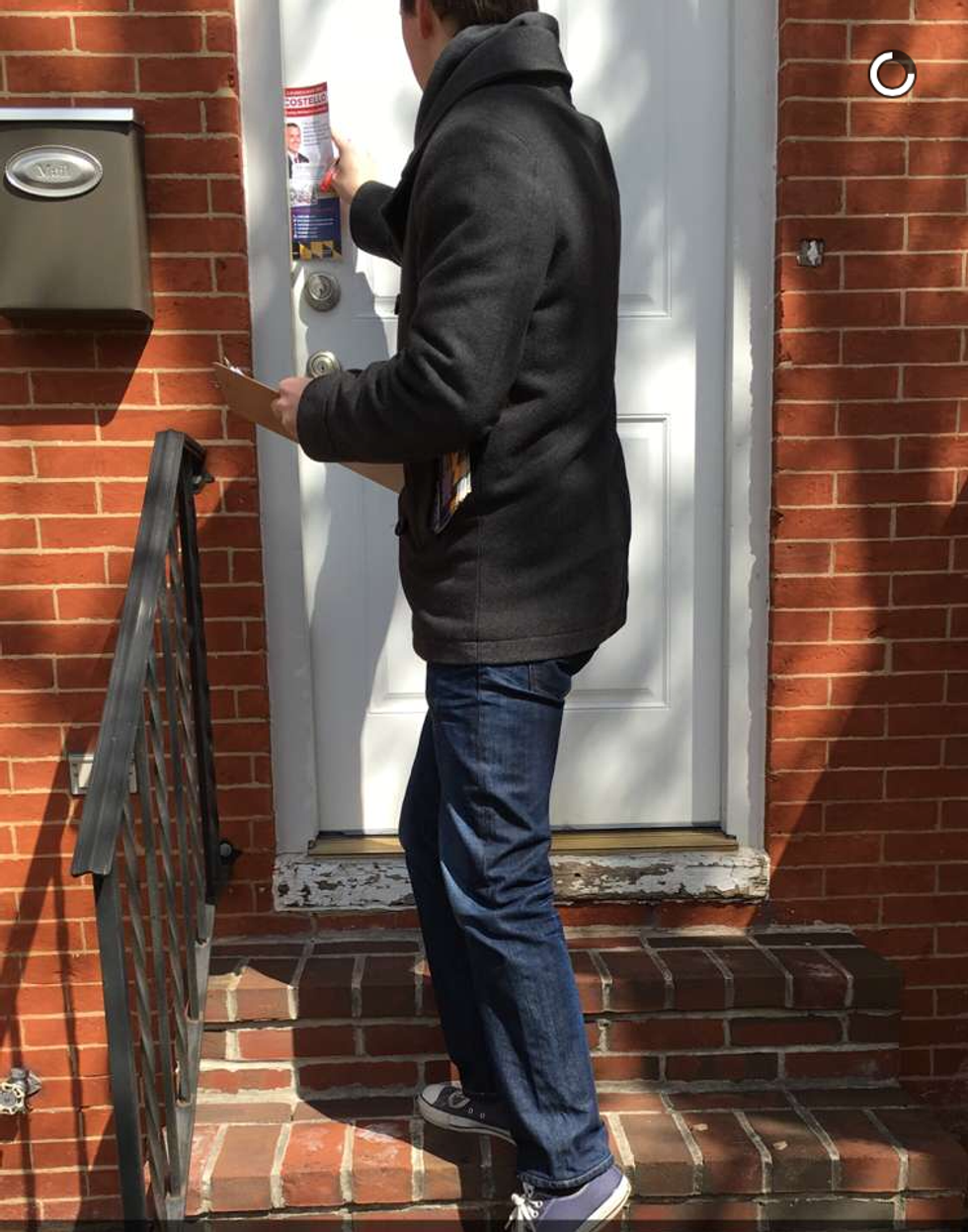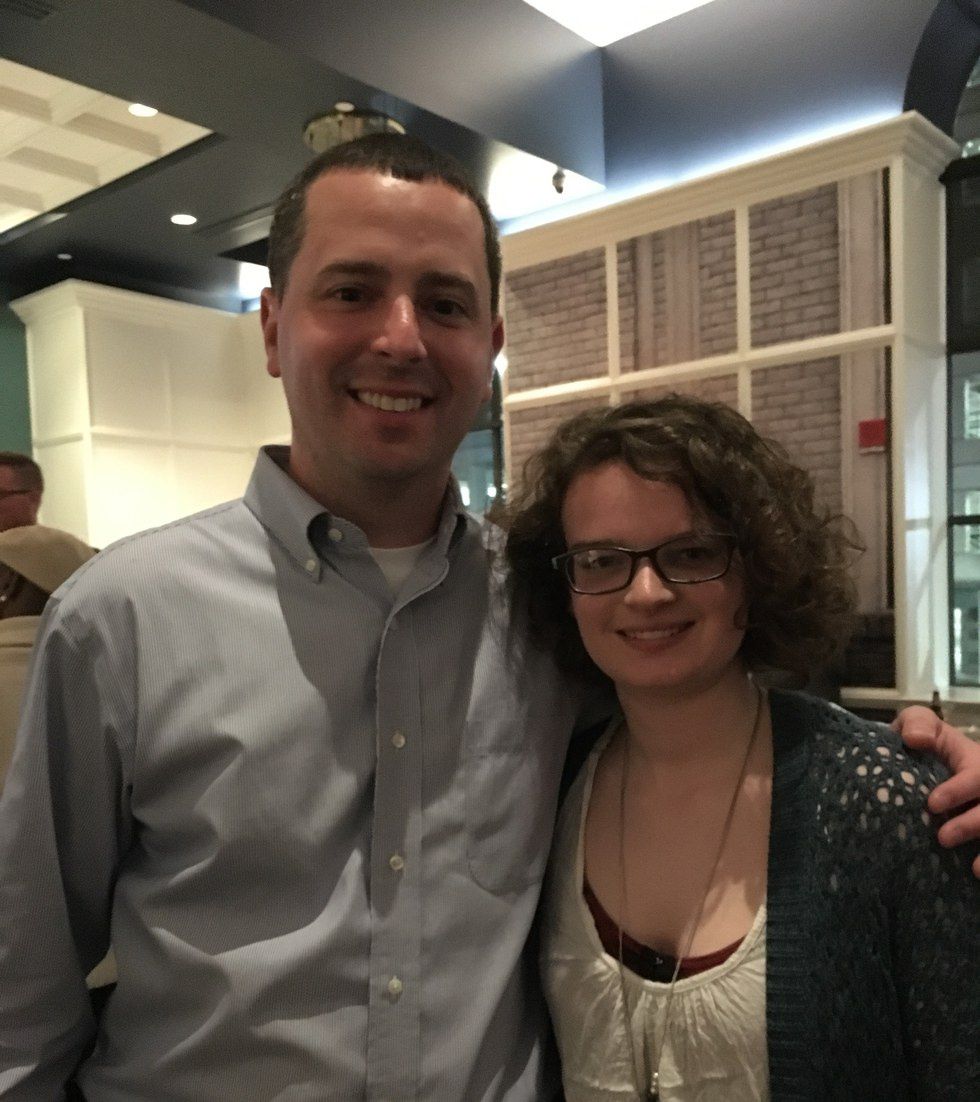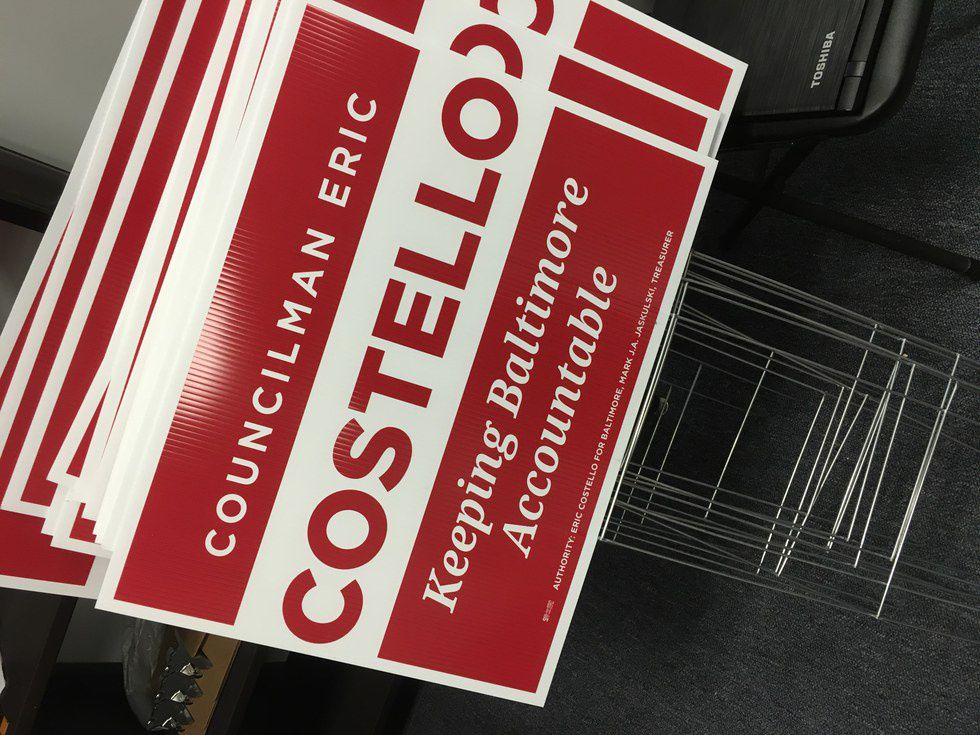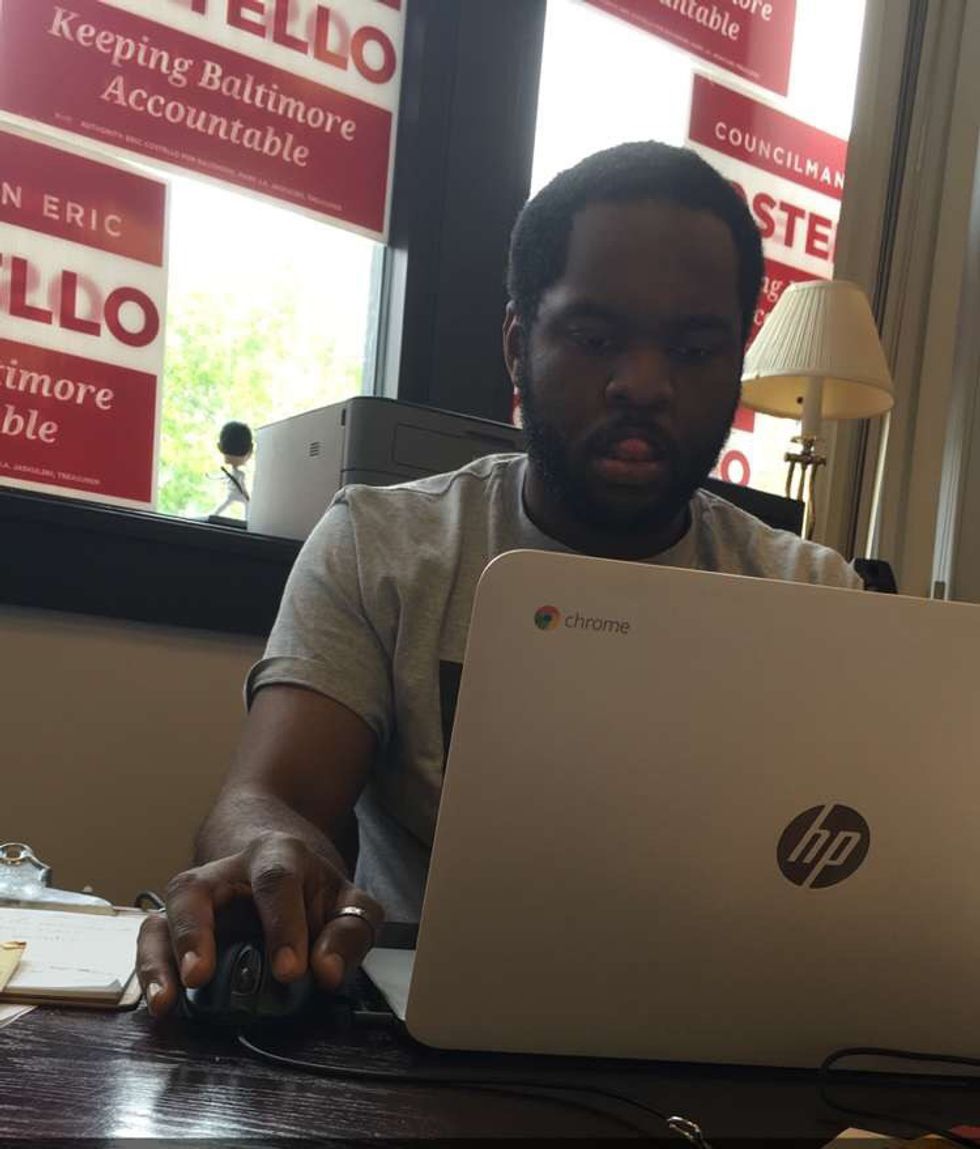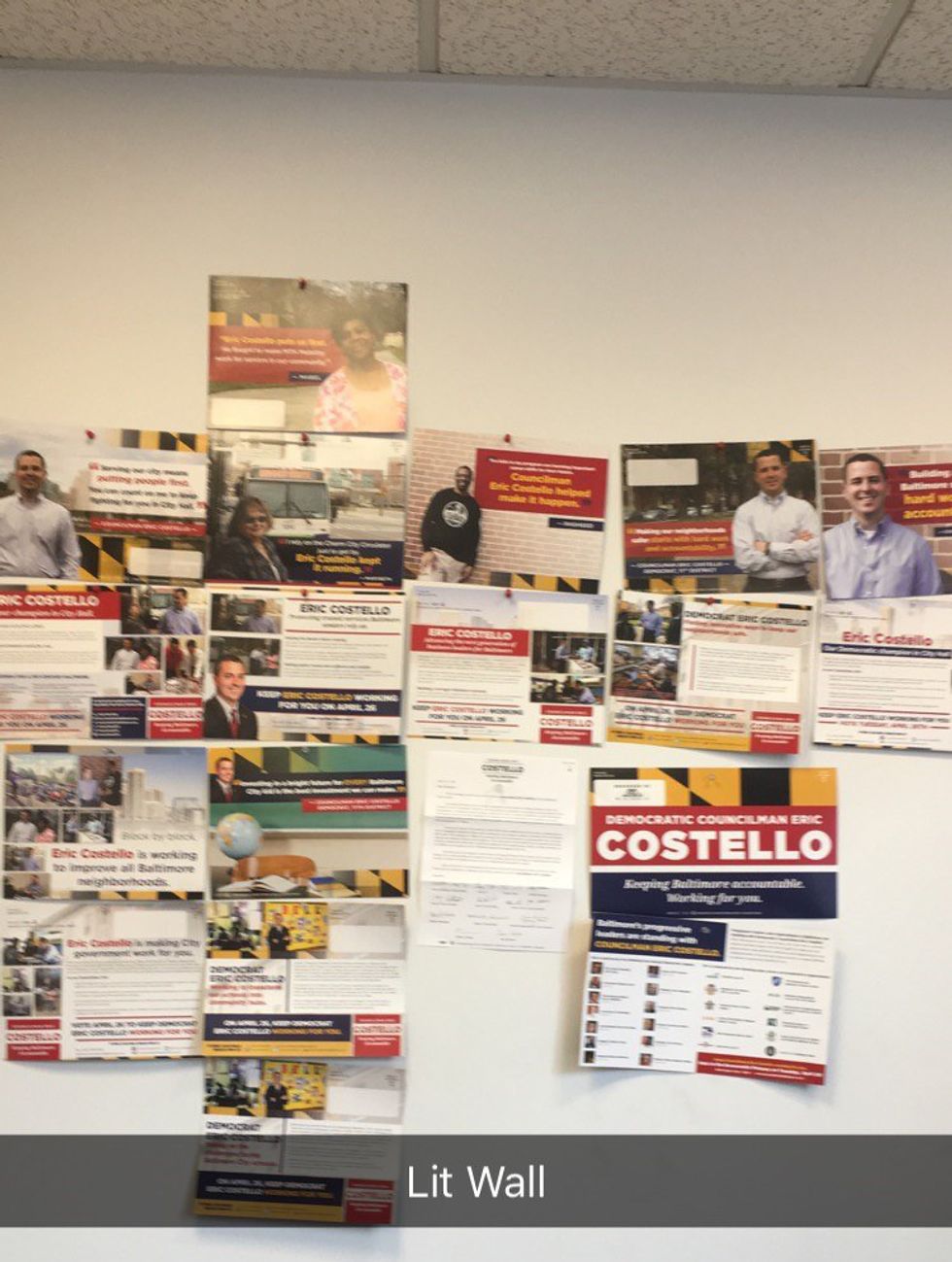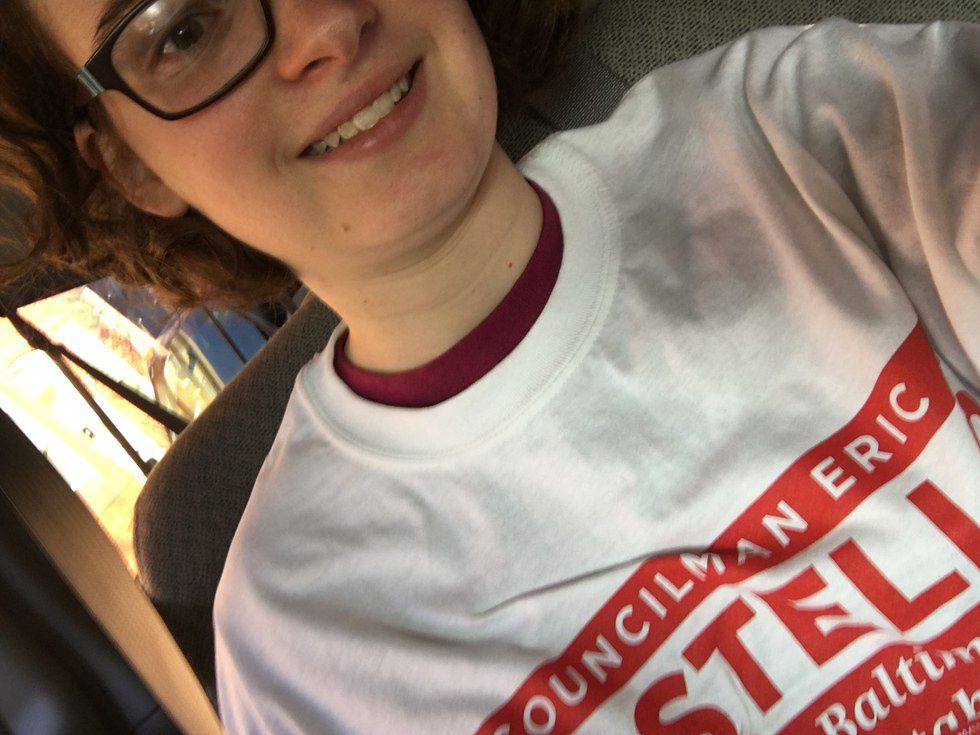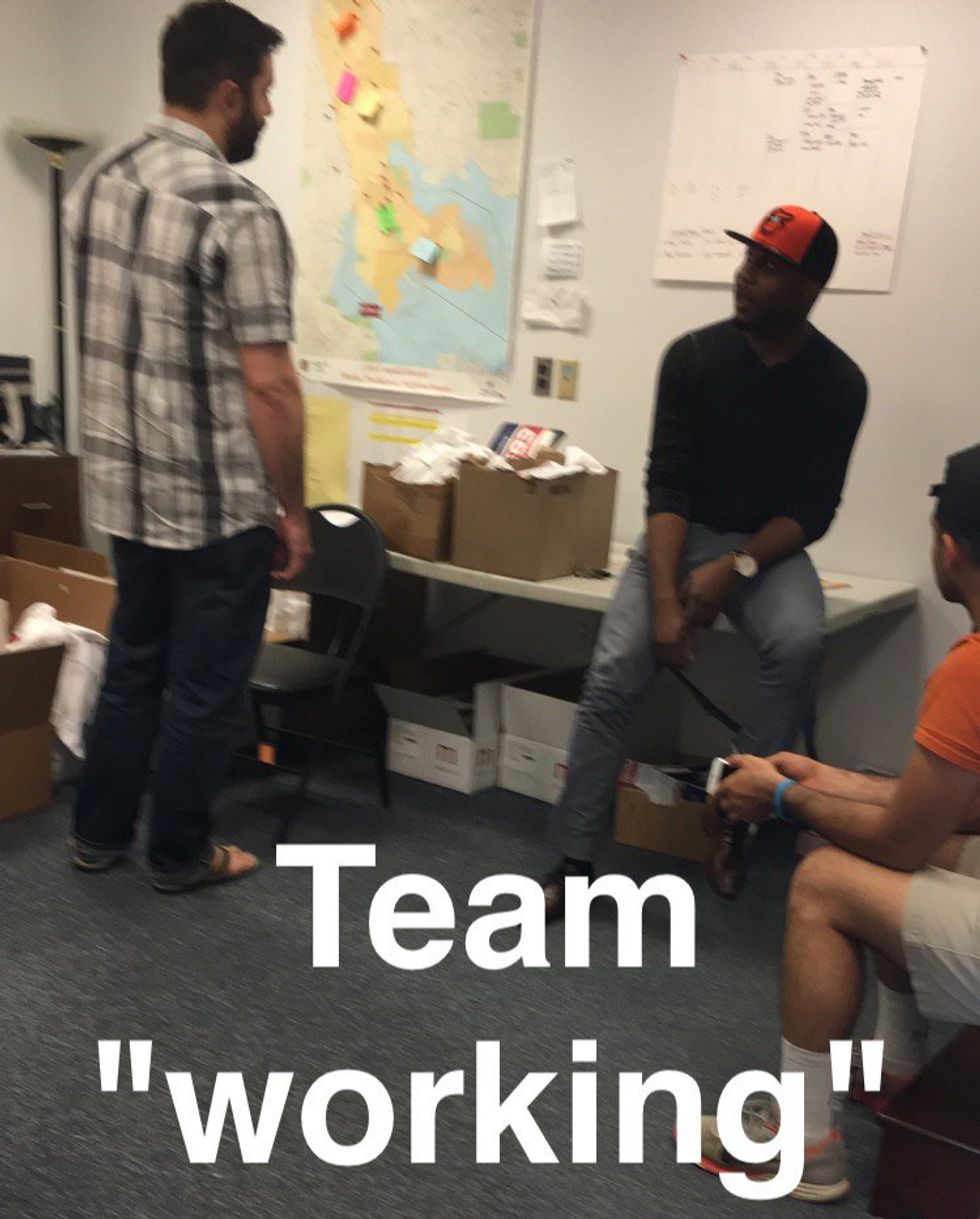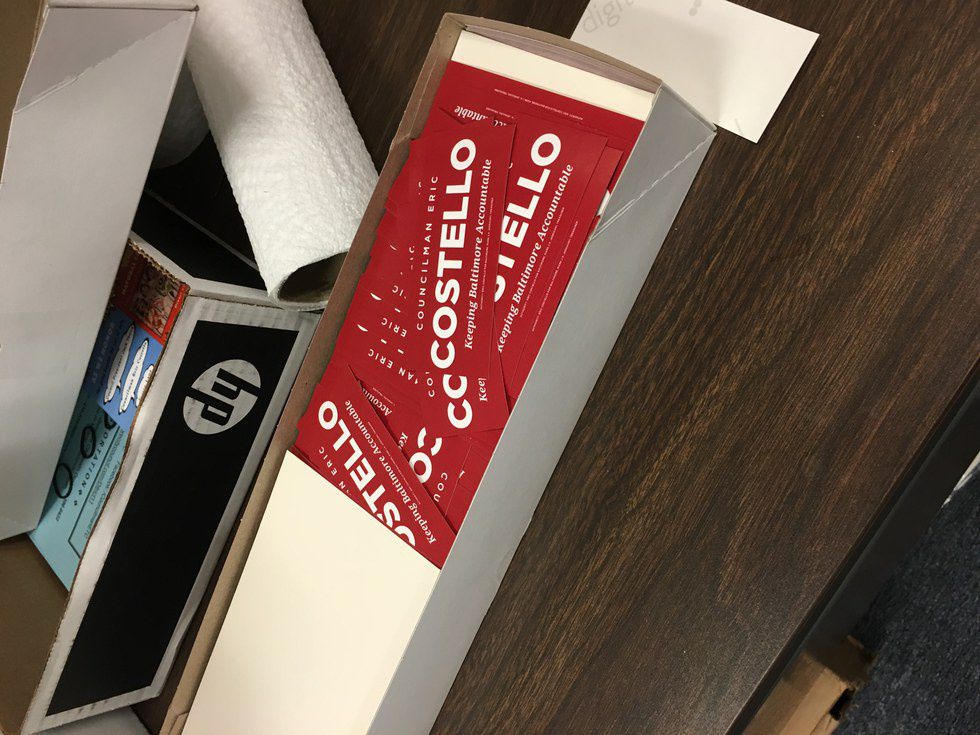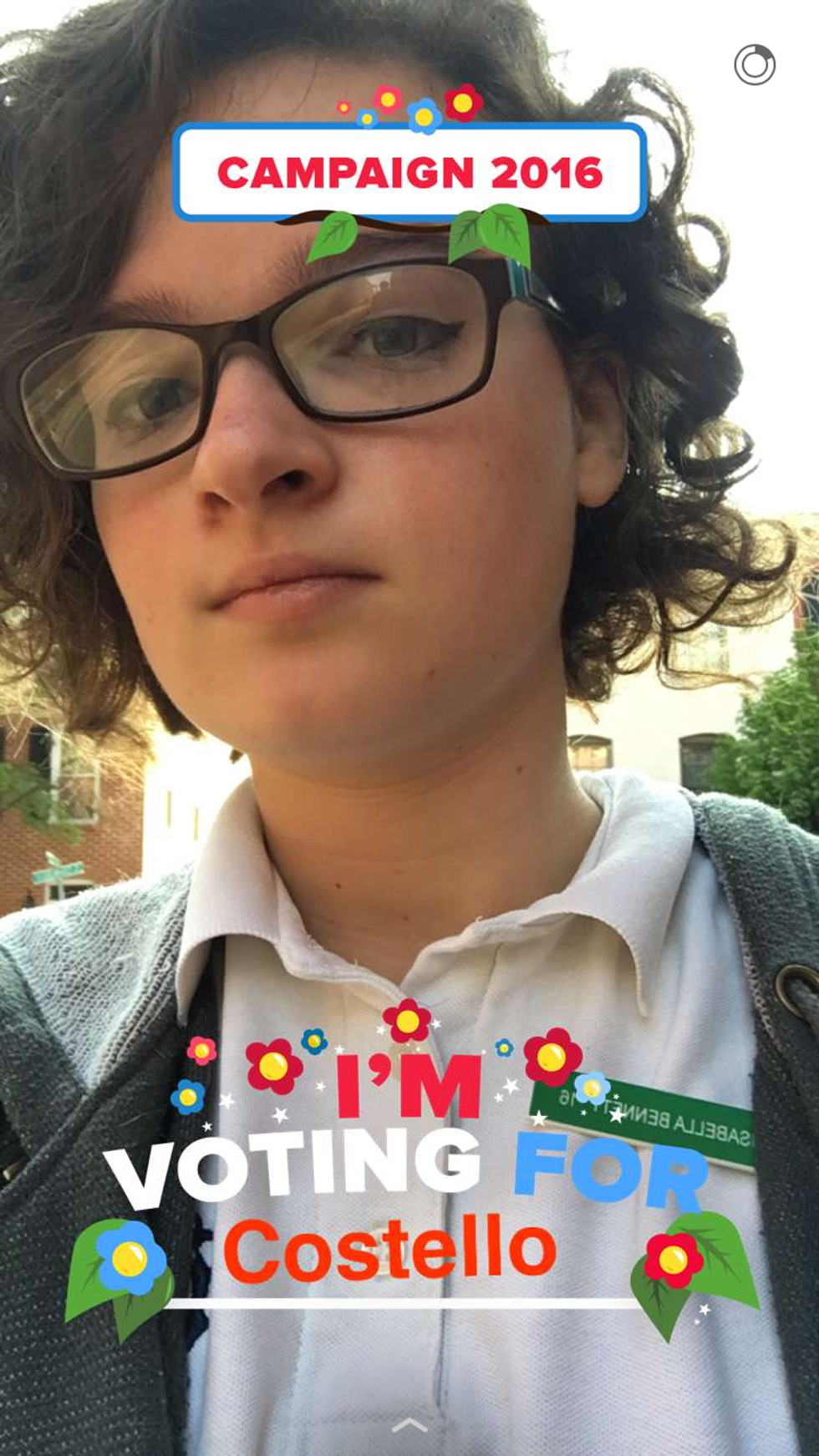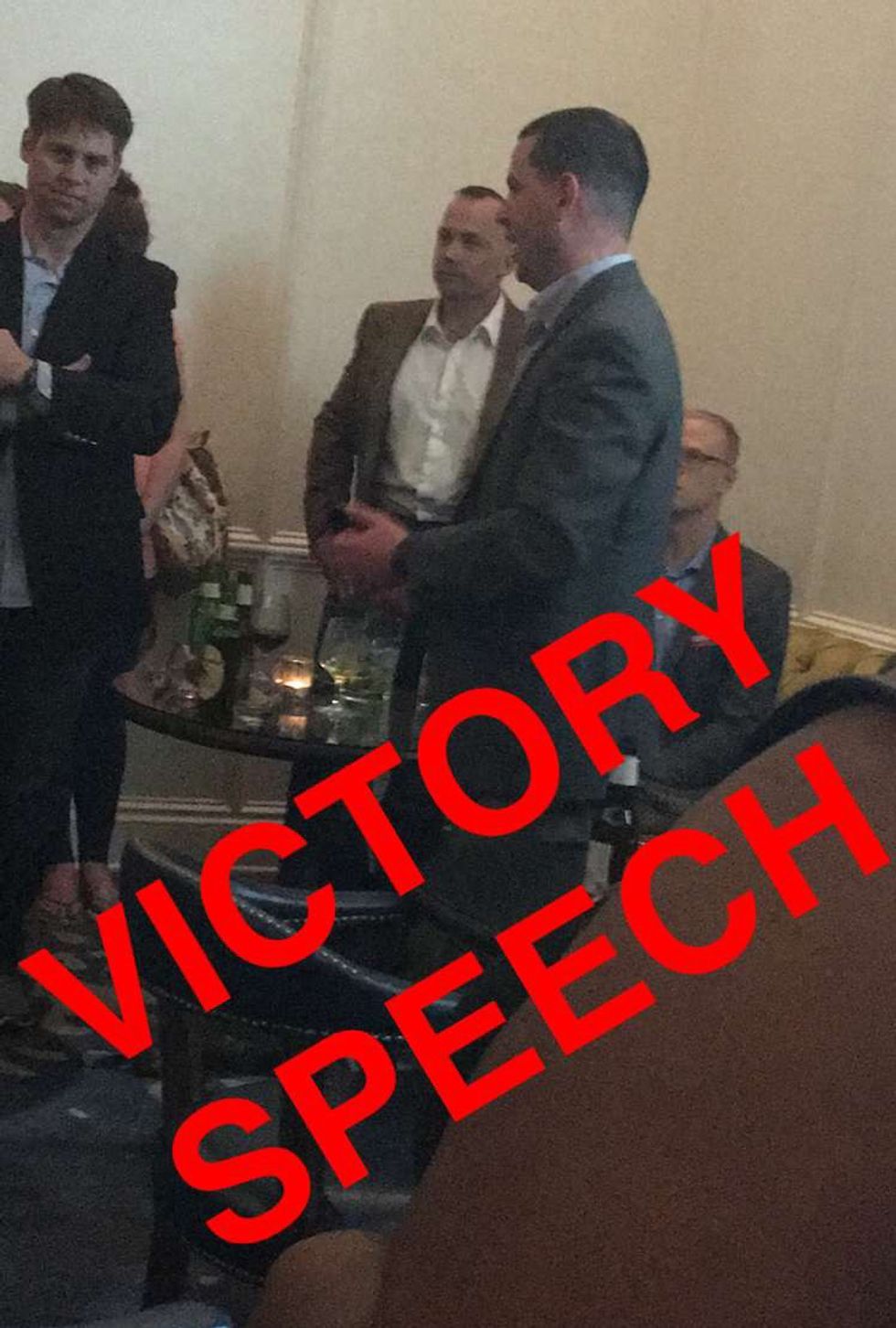This past August, I volunteered for my city councilman's re-election campaign. I did everything from answering phone calls, to canvassing, to putting stickers on everything. It was an experience that I won't soon forget.
With an upcoming election, these lessons are even more relevant as I watch how big-screen politicians run their campaigns for the biggest office in the United States. Local politics, although it's different from state and national politics, still run in a similar fashion, and the end goal is ultimately the same: election.
The politics of an election are simple in reality. Do everything you can to win. It's hard work, it's long nights and there's no guarantee it'll work, even if you're the best candidate.
So, I thought I'd impart some of the wisdom that I learned to some other people so that we can all see what our candidates do, and maybe understand why they do it a little better.
1. Every moment could be a PR moment
Seen here is Councilman Costello shaking hands with a police officer, while he and the building manager discuss the events happening immediately before this photo was taken.
Not five minutes before this photo, I had been going about my business making phone calls and writing numbers in my little room of the campaign office. That work was stopped abruptly by the sound of six police cars converging on the corner to the left of the office, and the Field Director asking if I wanted to go see a drug bust about a minute later.
While we didn't see anything happen, we did get the low down from the police officer. But that's besides the point. The point is that with expert campaigning skills, Costello's Campaign Manager made sure that someone with a phone got a picture of Costello talking with the officer.
There were a lot of things about politics that surprise me but taking advantage of every situation is nothing knew.
2. Social media isn't everything, but it's important
I'll be honest, making phone calls is boring. Like really boring. I was usually at the office for two to three hours just making phone calls. I went through four sheets a day, sometimes five. As a teenager, I spent some of that time snapchatting my friends. One day I noticed that the snapchat filters were picking up Costello's face on the literature. The result: I now have at least six photos with various filters saved to my phone.
Costello's target constituent is the elderly, especially those in the various retirement homes around downtown Baltimore. Due to this, his main social media platform is Facebook. Facebook is good because he could keep all of his constituents updated on activity around the city, as well as things he is planning or involved in.
Social Media drives our society today, all of our elected officials have some sort of facebook and twitter where they keep constituents updated on bills, legislature, and events. To not be involved in social media today, would be to forfeit election.
3. Canvassing is actually fun
Canvassers, also known as those annoying people who knock on your door all the time during an election. I'm going to let you in on a little secret. If you say yes or no once, most likely, they won't come back.
But seriously, just answer the door. We know you're there. It was such a great time though. I don't think I ever dealt with anyone who was really rude, and in the two times I actually went out canvassing I talked to some really awesome people.
Sometimes it was awkward being the youngest person around, especially in a group of two or three people because they're all experiencing things that I'm not going through yet. With that said, it also meant I got to listen in on conversations that will help me when I do get to that point in my life. Take for instance, my first time out canvassing. I was in a team with the Chief of Staff (pictured above) and another volunteer who was super sweet. They're both in their mid-twenties and are in a position where they have a ton of possibilities and paths in their life.
The second time, it was me and a really cool middle-aged volunteer. We did are canvassing in his neighborhood that day.
Both times I was out my group ran into canvassers for other candidates from different races which I thought was cool because we would share things like, "Hey, this person's really mean," or, "That one's not home." just to save us all some time.
Canvassing itself is a skill. It's something you definitely have to do in at least pairs. You have to be able to balance the list of names and addresses as well as the piles of lit you carried around with you. Oh, and I hope you remembered how to spell the name if they don't answer the door. My first time canvassing, we were literally in my neighborhood. Like we started at my street. That was weird, because at more than one point we were talking to people who had known me since birth or young age. It was strange for me, and I know it was strange for them. One person who saw my dad a few days after that told him it had been weird to switch to talking to me as an adult instead of as a child.
Seriously though, just open the door. We won't take up much of your time and it could be helpful.
4. It's all about who you know.
Everyone can volunteer for a candidate. I mean, everyone. I did it, because my dad is apparently friends with Costello and he's a nice guy.
People talk about politics being a peoples game. They mean it literally, and at every level. Everyone knows everyone. 90 percent of Costello's campaign staff had all been in the same fraternity in college.
When on election day, signs were lining Light Street that said "Anyone but Costello" in the same style as our campaign signs, every staff member had a similar suspicion as to who.
Whenever they talked it was like they knew everyone in the world of politics, especially the ones in their peer group. Who knows, maybe they have a big "under 30 political staff party" once a year to get everyone together.
5. There's a lot to do.
There were some days where I was just making phone calls, but I could hear the others working hard in the "executive suite" through the wall. Other days I would finish my phone calls and still have an hour or more to do work so I'd get to join them in the front of the suite to make signs or put stickers on things.
I remember one day, myself and five other volunteers (all of them from the same fraterntiy) put 10,000 "Endorsed by the Baltimore Sun" stickers on everything. Every piece of literature, every sign, everything.
Up until the day of election, people were out canvassing everyday. Then there's canvassing outside of the polling places. Everyday people were doing a million different things, and that's just what they got to.
6. Everyone is always working
There are a lot of people involved in a campaign. There's a Campaign Manager, a Field Director (pictured above), the Chief of Staff, and the dozens of volunteers who come out to help everyday.
Everytime I came in, someone was dealing with some constituent or resolving some campaign problem. Whenever I made phone calls, whether I was by myself or with a few others, I enjoyed watching and listening as everyone ran around performing tasks or talking out problems in the city.
Whenever I finished early, there was always another job for me to do, and I never once heard the words, "Nah, there's not really anything for you to do." The closest I came to that was when they didn't need me in the office so they had me ride in a campaign van with the Field Director and Campaign Manager to hopefully get some people to take to the early-voting poll. Though we didn't get anyone, I did do a lot of back-seat instructing on what should be said with the megaphone.
7. Lit
There was so much literature you wouldn't even believe it. Every day I came in and there was some new literature out. It came in all shapes and sizes and had all fun facts about things Costello's done for Distrcit 12 since his appointment last year.
The literature is so important because it's the first thing constituents see about you, and your message. In both design and message lit has to be clear, consise, and consistent.
8. Visibility is everything
No one will know you're running if they don't see your name out there. That's why we give constiutents signs, and why staff and volunteers get t-shirts like the one pictured above, taken during my van ride.
People can't vote for a candidate they don't know is running. People canvass, mail out lit, make phone calls, print out stickers, and drive campaign vans trying to get people out to vote.
Everyone wants and needs for the candidates to be seen and for their voices to be heard so that come election day, there's little to no doubt about their success.
You don't have to be a volunteer to promote your candidate, you can talk to your neighbords, you can put up a sign, or you could put a sticker on your laptop.
9. Take breaks and have fun
The word that got cut out in this picture was "hard." The guys above had just finished a long day in a van transporting people to and from the early-voting polling station and were having a chill conversation while I put stickers on everything. I'll be honest I was eavesdropping too, but only because they were talking about my neighborhood.
Everyone in that office worked hard 24/7 and they deserved the occasional chill breaks that they took, even if sometimes it did distract from the actual work that needed to be done.
Running a campaign, just like everything else in life, doesn't need to be a bare-knuckled, no fun thing to do. If it was, no one would ever run.
10. Promote the campaign
Get out there. Be visible. Be verbal. Be victorious. You have to be out there talking about your campaign, talking about your candidate, and most importantly about what your candidate will do or has done to better their community.
Getting the message out there and showing your support are crucial to getting a candidate elected. That's why you have to go and canvass, go and make phone calls, go and hang up signs.
That's why the candidate doesn't put their job on hold to run their campaign. So they can continue to make a difference while still running for re-election or election in a higher office.
11. Promote voting and then, go out and vote!
You've talked about the candidate, you've promoted their message. Now promote voting. Get people to the polls because they could support your candidate but still not want to go out and actually vote. You have to remind people of their polling place, remind them of election day, remind people why it's important to vote.
That's why we had the van, because anything we can do to make the already easy voting process even easier, Costello was willing to do it, not only to gain more votes, but because voting is an important right that not everyone has access too.
12. Hit the campaign party.
This is like the crowning moment, or the time of defeat but either way its still fun. For Costello, it was a crowning moment and a sigh of relief for all. The hard work, the long hours, and the countless steps had payed off until the next election.
I wasn't sure about going to the party, if they really wanted an 18-year-old there, but it ended up well and I talked to a lot of people. (Not nearly as many people as my dad did though.)
I ended up chatting with the first volunteer that I had gone canvassing with and also the Campaign Manager's girlfriend and talking to the two young women about how what we had experienced canvassing outside of our different polling places and discussing law school and our plans for the future.
The party was a really nice way to wrap up my first political experience because I was able to thank everyone that had trusted me to do my job and had given me the confidence that I wasn't going to screw up.
I would encourage everyone to go out and volunteer for their local politicians. It's a fun experience and you can really learn a lot and come to appreciate the work that goes into every piece of literature, every Facebook post, and every statement.




